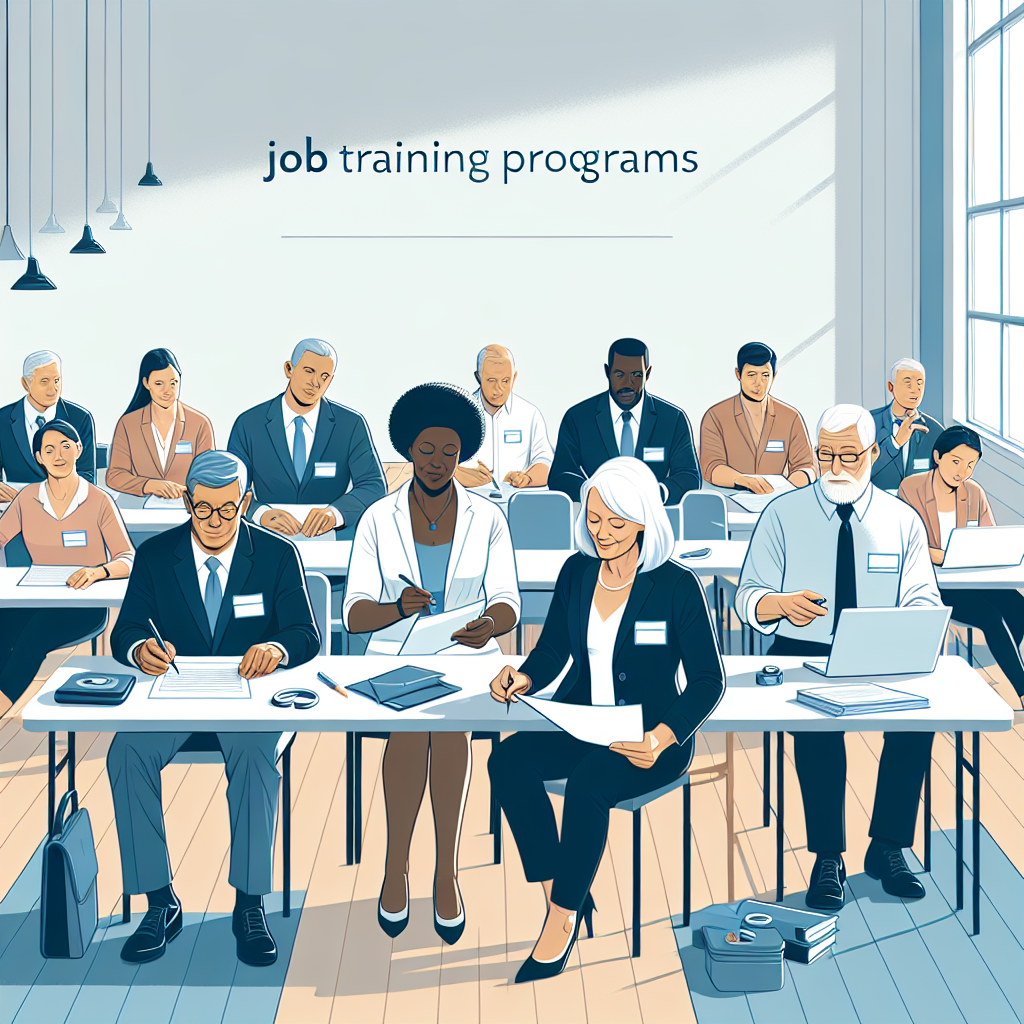Finding relevant, practical retraining and upskilling opportunities can feel overwhelming, but there are many local and virtual options designed specifically for experienced workers. Job Training Programs For Over 50 Near Me is a phrase many use when they want targeted resources — this article lays out what to look for, where to search, and how to evaluate programs so you can regain confidence and marketable skills quickly.
Training programs for people over 50 near me
Programs aimed at midlife and older adults focus on transferable skills, digital literacy, career transition coaching, and certifications that match local labor market needs. Municipal workforce centers, community colleges, nonprofit career centers, and some employer-sponsored initiatives commonly offer short courses or apprenticeships tailored to mature job seekers. When researching options, prioritize programs that include one or more of the following: hands-on practice, résumé and interview coaching, connections to local employers, and ongoing mentoring.
Where to start your search
Begin by contacting your state or county workforce development office and nearby community colleges. Local adult education departments often provide subsidized courses in computer basics, bookkeeping, healthcare entry-level credentials, and trade skills. Libraries and senior centers may also host workshops or have partnerships with training providers.
Another useful avenue is a focused search on job boards and career resource guides. For broader guidance on navigating online job resources that might complement your training search, consult this helpful resource: The Ultimate Guide to Job Boards for College Students in the USA, which explains strategies for identifying suitable boards and filters you can adapt for older-worker searches.
Types of programs and what they offer
- Workforce development bootcamps: Intensive, short-term programs teaching in-demand skills like customer service platforms, basic coding, or digital tools.
- Community college continuing education: Affordable certificate programs that often articulate into higher credentials and offer night or online classes.
- Industry-specific entry credentials: Healthcare aides, phlebotomy, HVAC basic certifications, and logistics roles frequently have fast-track programs.
- Apprenticeships and on-the-job training: Paid placements that combine learning with work experience and can be available to older entrants.
- One-on-one career coaching: Helps translate rich work histories into resumes, LinkedIn profiles, and interview narratives for new roles.
How to evaluate a program
Before enrolling, ask for outcomes data: completion rates, job placement statistics, and employers who hire graduates. Verify accreditation or alignment with recognized industry credentials. Consider schedule flexibility and whether tuition assistance, scholarships, or payment plans are available. Look for programs offering employer connections or internships, as these significantly increase chances of finding suitable work after training.
Funding and support options
Financial aid can come from many sources: local workforce agencies often have grants for dislocated or low-income workers, and veterans can access GI Bill benefits or VA employment programs. Nonprofits focused on older adults sometimes subsidize training costs. If you need evidence on labor trends to support a training decision, consult this government resource for context on older-worker participation in the labor force: BLS article on older workers staying in the workforce.
Strategies for success
Set clear, realistic goals and choose programs aligned with local job demand. Practice new technical skills regularly and network with instructors and cohort members. Update your résumé to highlight recent training and any volunteer or freelance work that demonstrates current capabilities. Consider part-time or contract work as a bridge into a new role.
Local partners to contact
- State and county workforce centers — for training vouchers and placement services.
- Community college continuing education offices — for certificates and flexible schedules.
- Nonprofit career reentry organizations — for tailored coaching and support groups.
- One-stop employment centers and libraries — for workshops and computer access.
FAQ
Q: How long do most retraining programs take?
A: Many focused certificate programs run from 6 to 16 weeks, while community college certificates can take a semester or two. Apprenticeships and degree programs take longer but may offer higher long-term returns.
Q: Are employers open to hiring older trainees?
A: Yes. Employers value reliability, problem-solving, and communication skills often stronger in older applicants. Programs that include employer partnerships or work placements improve hiring prospects significantly.
Q: Can I get financial help if I’m changing careers later in life?
A: Possibly. Check with local workforce agencies for grants or vouchers, inquire about nonprofit scholarships, and explore community college financial aid options. Some programs offer sliding-scale fees or payment plans.



